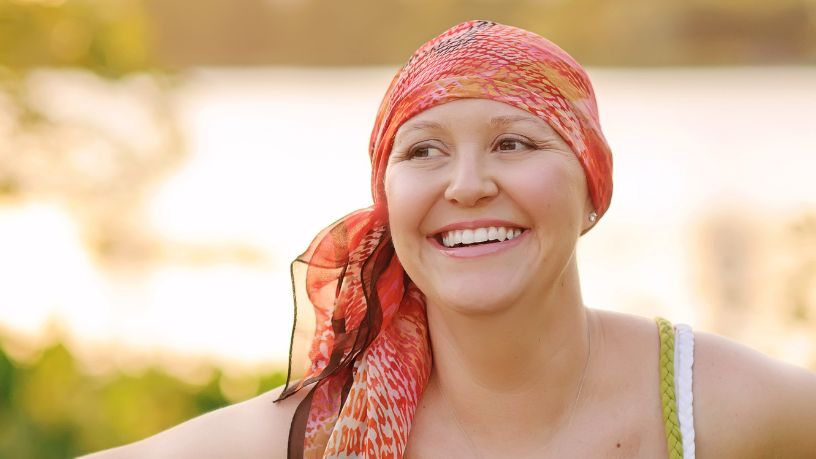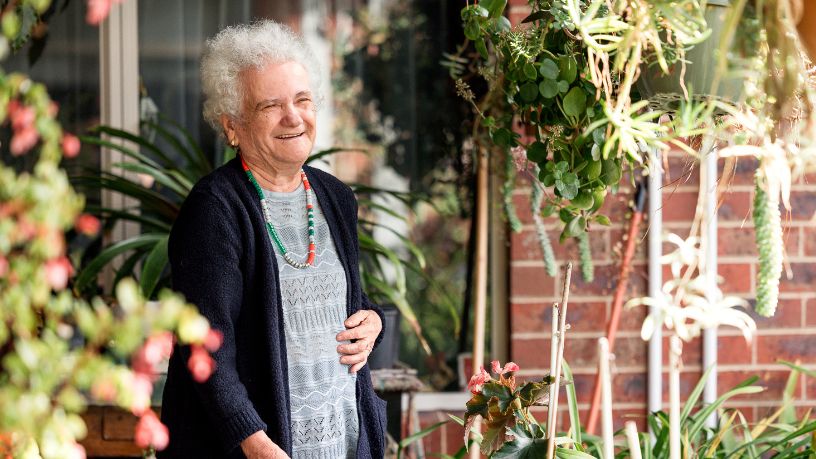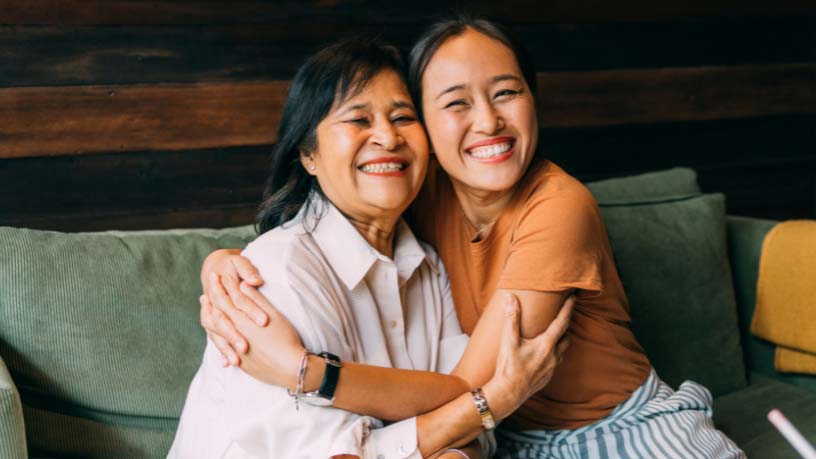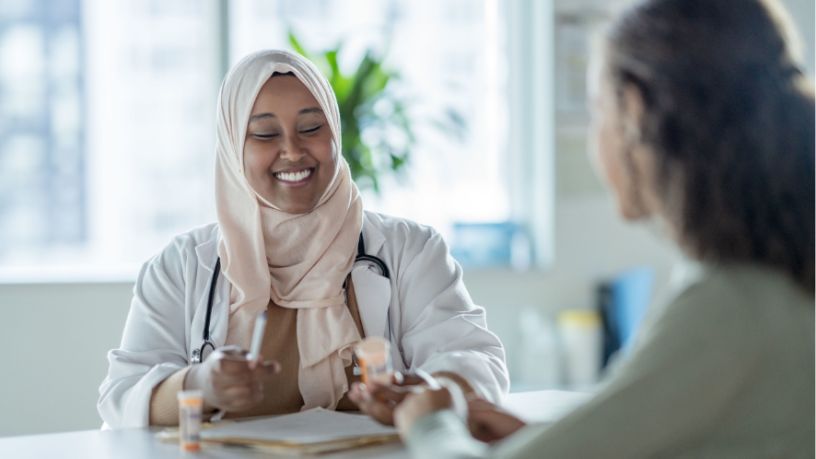Early detection can significantly improve the survival rates of many cancers, so it's important to keep up to date with health checks and screenings.
On this page
Key takeaways
According to the Cancer Council, population screening or age-specific testing tends to be the most effective way to detect cancer early.
Bowel, cervical and breast cancer screening are all available in Australia through government run programs.
Most of us will have a regular haircut and would never let an oil light in the car stay on too long before booking a service.
But, when it comes to our health, check-ups can fall to the bottom of our to-do lists and simply get forgotten.
With growing evidence that early detection can help stop health conditions from becoming more serious, it's crucial that we don't skip regular health checks or ignore signs and symptoms of serious diseases such as cancer.
Cancer and early diagnosis in Australia
Cancer Council Australia says it is currently estimated that one in 2 Australians will be diagnosed with cancer before the age of 85.1
Early detection can drastically improve survival rates and prevention of many cancers.2
Despite the enormous impact cancer can have on someone's health, the chances of beating the disease have improved markedly over the last 3 decades, not only from advancements in technology and available treatment options, but through early detection tests. For the years 2016 to 2020, 7 in 10 Australians are expected to survive for at least 5 years after a cancer diagnosis, and in some cancers the survival rate is as high as 90%.3
Screening for cancer
While it's not possible to cure all cancers, Paul Grogan from Cancer Council Australia agrees that the majority of cancers are easier to manage when detected early.
"On a whole-of-cancer basis, earlier diagnosis is associated with reduced mortality and improved survival," he says.
Not all cancers can be screened though.
There are hundreds of different cancer types and our current ability to detect them, and to treat them when they are detected, varies considerably.
The Cancer Council says population screening or age-specific testing is generally the most effective and efficient way to detect cancer early. But currently the only cancers that are recommended for screening on a population basis are bowel, cervical and breast cancers.
"There are other tests for individuals who may be at increased risk of a number of other cancers, or who have concerns, but these are not appropriate for population screening programs," Grogan says.
"Testing people without symptoms for other cancers can be more complex, potentially riskier and should only be done in consultation with medical professionals based on the individual patient's circumstances."
If we can't screen for every cancer, what can we do to help reduce our risk?
In addition to talking to your doctor about your risks and getting screened, it's important to focus on a healthy lifestyle and support overall good physical and mental health.
It is estimated that as much as 50% of all cancers could be prevented by avoiding smoking and excessive alcohol consumption, eating a healthy diet, exercising regularly and avoiding excessive sun exposure.4
Common screening tests for cancer
Breast cancer screening
BreastScreen Australia provides a free mammogram to women and people who are transgender or gender diverse aged 40 to 74 every 2 years. People outside this age group can request a screening with their doctor.
It is recommended that all adults do a monthly self-exam to check for any changes. Knowing what looks and feels normal for you can make it easier to identify anything unusual such as a lump or a change in skin colour or texture. If you do notice any changes, see your GP or healthcare professional.
Cervical cancer screening
Since the National Cervical Screening Program was introduced in 1991, cervical cancer incidence has drastically decreased.5 In December 2017, the 2-yearly Pap smear test was replaced by the 5-yearly cervical screening test which can detect the human papillomavirus (HPV) infection.
HPV can cause changes in the cervical cells which may lead to cervical cancer. The first cervical screening test can be done at the age of 25 years or 2 years after the last Pap test; and then every 5 years after that.
Unfortunately, the cervical screening test won't cover you for all gynaecological cancers, and ovarian cancer currently has no effective screening.
Bowel cancer screening
All Australians aged 45 to 74 years are eligible for a free bowel cancer test kit to receive in the mail as part of the National Bowel Cancer Screening Program. You can register online, and once you have completed your first test you will receive follow up tests every 2 years.
Around 90% of all bowel cancers can be successfully treated with early detection, so regular checks are crucial.6
If you see blood in your stool or have persistent changes to your bowel habits, see your GP.
Skin cancer checks
Australia has one of the highest rates of skin cancer in the world, so keeping a close eye on any changes we see to our skin, staying safe when out in the sun and having regular skin checks is important for skin cancer prevention and early detection.7
While there's no formal population-based screening program or set guidelines for early detection of skin cancers in Australia, many workplaces will offer regular skin checks for employees, or you can visit a local skin clinic or dermatologist.
Most skin cancers are self-detected so it's important to know what to look for. Cancer Council lists common symptoms of skin cancer as:
- a spot that looks and feels different from other spots on your skin
- a spot that has changed size, shape, colour or texture
- a spot that is tender or sore to touch
- a sore that doesn't heal within a few weeks
- a sore that is itchy or bleeds.8
Staying vigilant about cancer
Tell your GP if you have a family history of cancer so any appropriate screenings and tests can be done at the right time.
If you have any signs or symptoms, or you are concerned about your risk of developing any type of cancer, don't ignore them or wait until you are eligible for free screening tests. Speak to your doctor immediately.
Resources
Cancer Council Victoria has an early detection resource online that provides information about cancer symptoms, screening recommendations, and what to do if you have concerns.

At Bupa, trust is everything
Our health and wellbeing information is regularly reviewed and maintained by a team of healthcare experts, to ensure its relevancy and accuracy. Everyone's health journey is unique and health outcomes vary from person to person.
This content is not a replacement for personalised and specific medical, healthcare, or other professional advice. If you have concerns about your health, see your doctor or other health professional.
1Cancer Council. (2024). Types of cancer. Cancer Council.
2World Health Organization. (2024). Promoting cancer early diagnosis. World Health Organization.
3Cancer Council. (2024). Facts and Figures: Cancer statistics in Australia. Cancer Council.
4World Health Organization. (2024). Preventing cancer. World Health Organization.
5Australian Government, Department of Health and Aged Care. (2024). About the National cervical screening program. Australian Government, Department of Health and Aged Care.
6Australian Government, Department of Health and Aged Care. (2024). National bowel cancer screening program. Australian Government, Department of Health and Aged Care.
7Cancer Council NSW. (2024). About Skin Cancer. Cancer Council NSW.
8Cancer Council NSW. (2024). How to spot a skin cancer. Cancer Council NSW.
You might also like...
Cancer: Treatment types and options
If you or a loved one has been diagnosed with cancer, it helps to understand the different treatment options and how they work.
Cancer tests: How and why to get tested
Cancer is a leading cause of death in Australia, so it’s important to get tested if you have any symptoms and take part in government screening programs.
Health checks and screening at every stage of life
It’s important to make sure you get the right health checks throughout your life, from your 20s to your 50s and beyond. Check out our guide to learn more.
9 ways to make the most of your GP check-up
Doctor’s appointments can feel overwhelming and there can be a lot to get through in a short amount of time. So how can you get the most out of your GP visit?





